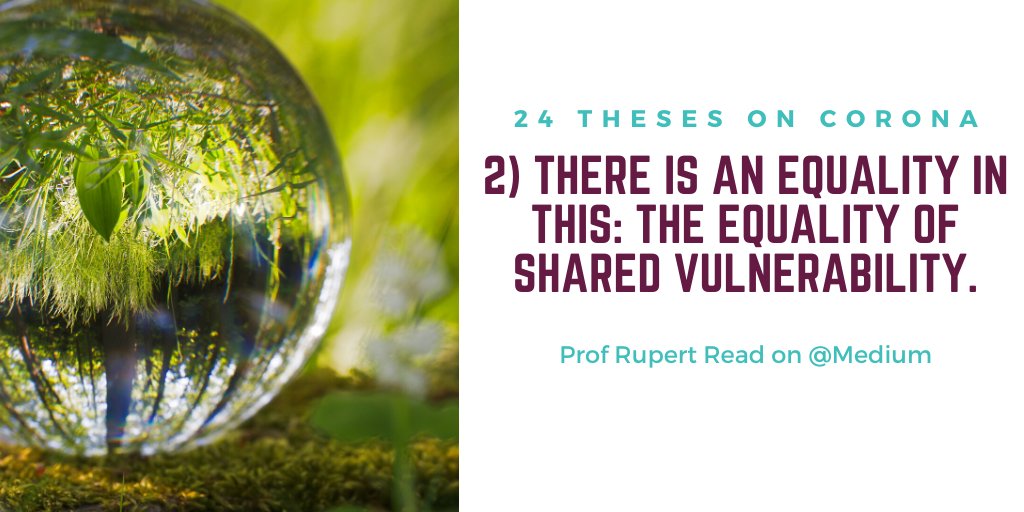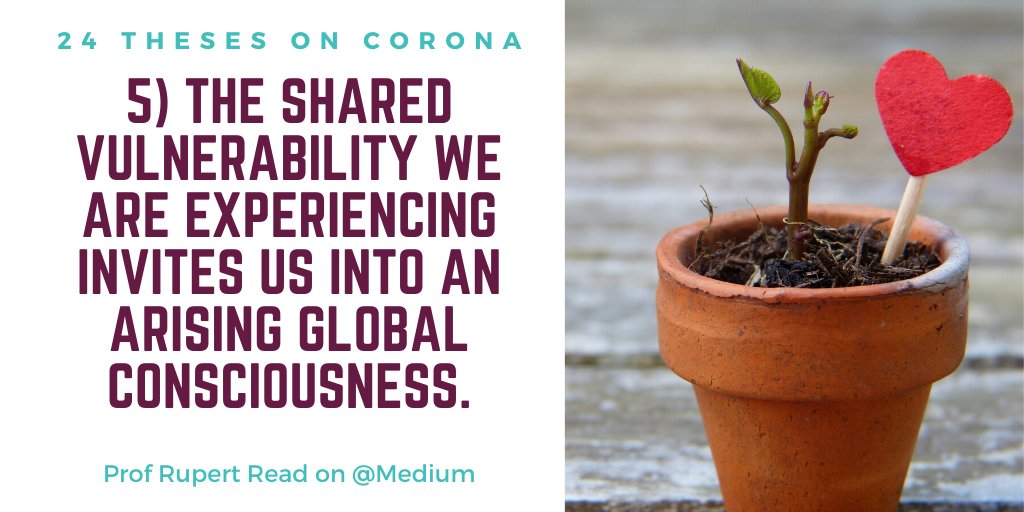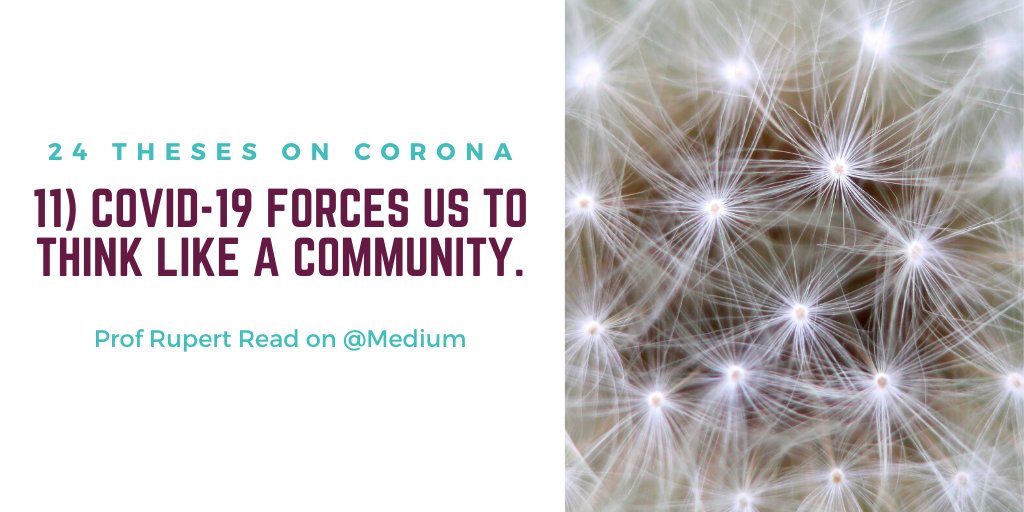24 lessons from this pandemic.
1) This corona crisis is a global experience of lived emergency. https://medium.com/@rupertjread/24-theses-on-corona-748689919859">https://medium.com/@rupertjr...
1) This corona crisis is a global experience of lived emergency. https://medium.com/@rupertjread/24-theses-on-corona-748689919859">https://medium.com/@rupertjr...
3) The emergency is unprecedented, and not just in living memory: there has never been a high-mortality global pandemic in the age of globalization.
4) Our Governments (especially in most of the English-speaking world) have in many cases contributed to our vulnerability to this pandemic — and this makes them (politically) vulnerable…
6) The crisis is changing for the better our sense of what is humanly and practically possible.
7) Many of us will, though we might not want to own up to it, experience this remarkable moment net-positively.
8) Because we have been reminded of what really matters.
9) And because disasters can bring out the best in us, collectively.
12) And forces us to reflect on what we usually take for granted.
13) It should force us to reflect upon the extreme fragility of the globalized world we have allowed to be created.
14) A less-globalised world need not be a more balkanised or nationalistic world: relocalisation is a positive agenda that will make us safer, post-Covid-19.
15) More precisely, the safer post-Covid world will be a glocal world: global in wisdom and co-ordination, but more locally resilient with less rapid movement of ‘goods’ and people.

 Read on Twitter
Read on Twitter





